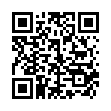|
This article is cited in 1 scientific paper (total in 1 paper)
Artificial Intelligence, Knowledge and Data Engineering
Performative framework and case study for technology-enhanced learning communities
N. Moumoutzisa, Y. Sifakisa, S. Christodoulakisa, D. Paneva-Marinovab, L. Pavlovab
a Technical University of Crete
b Institute of Mathematics and Informatics at the Bulgarian Academy of Sciences (BAS)
Abstract:
This paper employs the overarching concept of communities to express the social contexts within which human creativity is exercised and learning happens. With the advent of digital technologies, these social contexts, the communities we engage in, change radically. The new landscape brought about by digital technologies is characterized by new qualities, new opportunities for action, new community affordances. The term onlife is adopted from the Onlife Manifesto and used to distinguish the new kind of communities brought about by the modern digital technologies, the onlife communities. Design principles are presented to foster such communities and support their members. These principles constitute a framework that emphasizes the concept of performativity, i.e. knowledge is based on human performance and actions done within certain social contexts, rather than development of conceptual representations. To demonstrate the use of the framework and the corresponding principles, the paper presents how they can be used to analyze, evaluate and reframe a concrete system addressing creativity and learning in the field of cultural heritage (history teaching and learning). One of the most significant results is the adoption of principles that facilitate students’ engagement in rich learning experiences moving from the role of end-user towards the role of expert-user with the support of so called maieuta-designers. The result of this process is the use of the studied software not only to consume ready-made content but the creation of new, student generated content, offering new learning opportunities to the students. As the evaluation shows, these new learning opportunities enable students to develop a deeper understanding of the topics studied.
Keywords:
learning communities, performativity, creativity, evaluation.
Received: 04.12.2020
Citation:
N. Moumoutzis, Y. Sifakis, S. Christodoulakis, D. Paneva-Marinova, L. Pavlova, “Performative framework and case study for technology-enhanced learning communities”, Informatics and Automation, 20:4 (2021), 905–939
Linking options:
https://www.mathnet.ru/eng/trspy1170 https://www.mathnet.ru/eng/trspy/v20/i4/p905
|

| Statistics & downloads: |
| Abstract page: | 235 | | Full-text PDF : | 64 |
|




 Contact us:
Contact us: Terms of Use
Terms of Use
 Registration to the website
Registration to the website Logotypes
Logotypes








 Citation in format
Citation in format 
